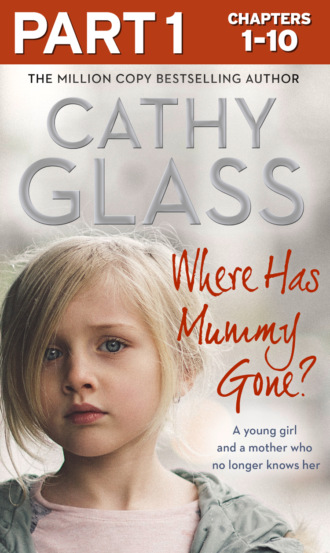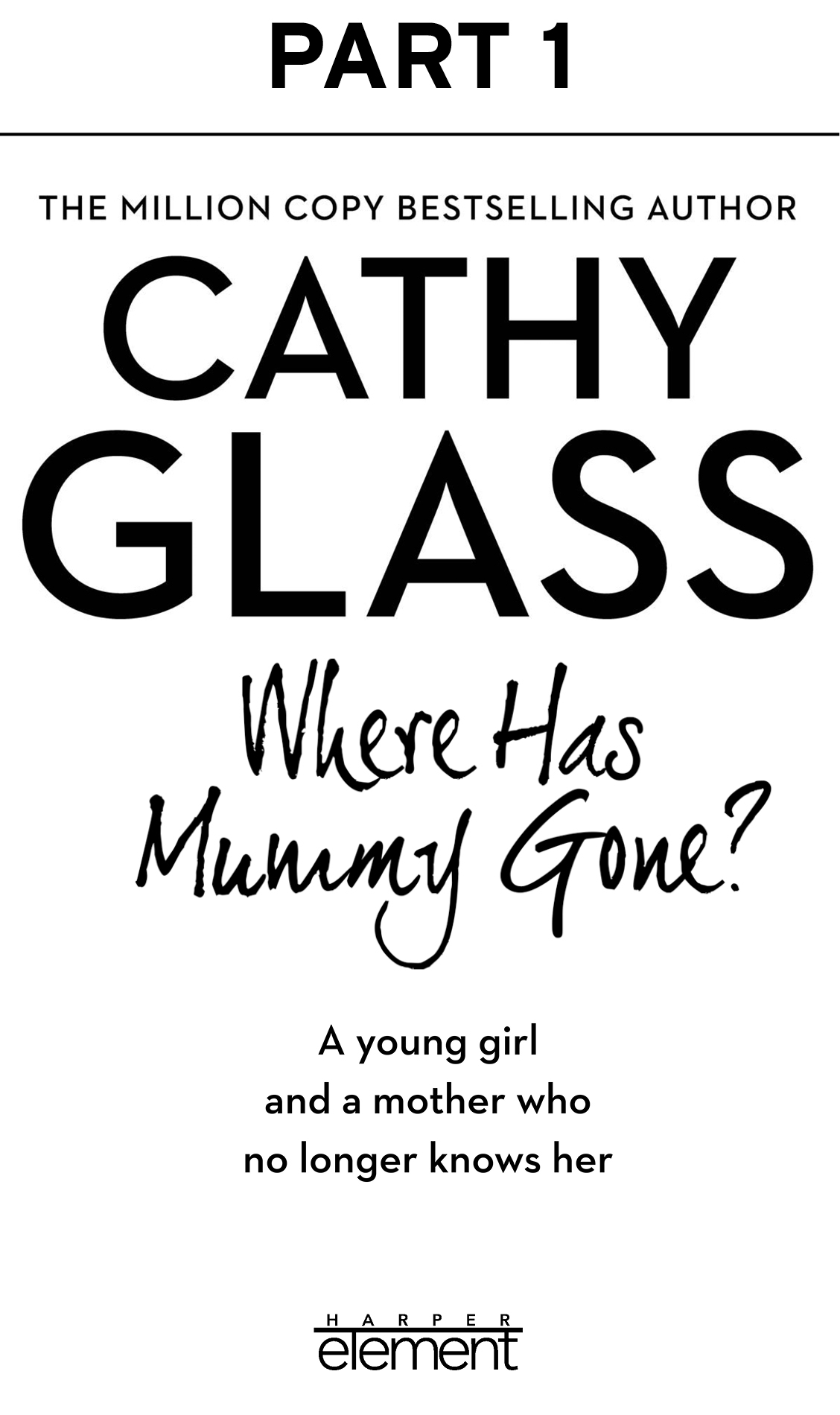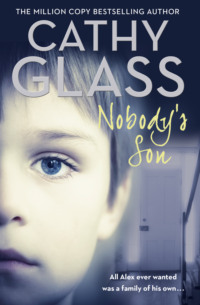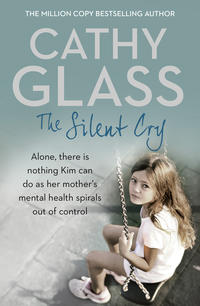
Полная версия
Where Has Mummy Gone?: Part 1 of 3: A young girl and a mother who no longer knows her


Copyright
Certain details in this story, including names, places and dates, have been changed to protect the family’s privacy.
HarperElement
An imprint of HarperCollinsPublishers
1 London Bridge Street
London SE1 9GF
www.harpercollins.co.uk
First published by HarperElement 2018
FIRST EDITION
Text © Cathy Glass 2018
Cover layout design © HarperCollinsPublishers Ltd 2018
Cover photograph © Kristina Dominianni/Arcangel Images (posed by a model)
A catalogue record of this book is available from the British Library
Cathy Glass asserts the moral right to be identified as the author of this work
All rights reserved under International and Pan-American Copyright Conventions. By payment of the required fees, you have been granted the nonexclusive, non-transferable right to access and read the text of this e-book on screen. No part of this text may be reproduced, transmitted, downloaded, decompiled, reverse engineered, or stored in or introduced into any information storage retrieval system, in any form or by any means, whether electronic or mechanical, now known or hereinafter invented, without the express written permission of HarperCollins e-books.
Find out about HarperCollins and the environment at
www.harpercollins.co.uk/green
Source ISBN: 9780008305468
Ebook Edition © August 2018 ISBN: 9780008305499
Version 2018-09-26
Contents
Cover
Title Page
Copyright
Acknowledgements
Chapter One: Familiar?
Chapter Two: Safe and Happy
Chapter Three: Mummy Needs Me
Chapter Four: School
Chapter Five: Amanda
Chapter Six: The Way Home?
Chapter Seven: Lost
Chapter Eight: Difficult
Chapter Nine: When Can I See Mummy?
Chapter Ten: Snow Angel
Moving Memoirs eNewsletter
About the Publisher
Acknowledgements
A big thank you to my family; my editors, Carolyn and Holly; my literary agent, Andrew; my UK publishers HarperCollins, and my overseas publishers, who are now too numerous to list by name. Last, but definitely not least, a big thank you to my readers for your unfailing support and kind words. They are much appreciated.
Chapter One
Familiar?
I was sure I’d heard it all before …
The child I was being asked to foster had been badly neglected for years by her single mother, who was an intravenous drug user and alcohol dependent. The social services were going to court later that morning to bring the child into care. Melody was eight years of age and had been sleeping on an old stained mattress on the floor of a damp, cold basement flat with her mother, and they were about to be evicted. She hadn’t been attending school, and despite the social services putting in support, there was never any food in the cupboards and she and her mother were often hungry, cold and dirty.
‘She is also very angry,’ Jill, my supervising social worker from the agency I fostered for, continued over the phone. The referral from the social services had come through her.
‘The mother is angry?’ I asked.
‘Yes, and Melody – her child – is too. She tried to kick and thump the social worker when she visited yesterday and threw something at her when she began talking to her mother. The social worker will take a police officer with her when she removes Melody, assuming the care order is granted.’
‘Is there any doubt?’
‘There shouldn’t be, but you never can tell. It will depend on the judge. The case is in court shortly, so it’s likely to be early afternoon before they are with you.’
‘All right.’ Forcibly removing a child from their home wasn’t a good start, but if the parent wasn’t cooperating there was no alternative. The mother had been given plenty of opportunities to sort out her life and parent her daughter properly but had repeatedly failed.
‘Amanda, the mother, can’t control Melody,’ Jill said. ‘She’s failed to put in place any boundaries and Melody can easily become angry. One social worker described her as feral.’
One of the reasons I had been asked to foster Melody was because I had years of fostering experience, much of it working with children with challenging behaviour, and I knew why Melody was angry. Even though she had been living in appalling conditions and had not been looked after, she was being taken away from the mother she knew and loved.
‘She’s very loyal and protective of her mother,’ Jill continued, ‘and won’t hear any criticism of her. They both hate social workers. Melody does as she likes and is very much the one in control.’ Again, this wasn’t unusual for a child who’d had to raise herself.
‘And her father?’ I asked. Knowledge of the family helps the foster carer.
‘They don’t live together. It’s unclear if Melody sees him at all. He’s also an intravenous drug user. Both parents have served prison sentences for drug dealing.’ Which again I’d heard before. ‘Melody has four older half-siblings, different fathers. All those children were taken into care and then adopted years ago.’
‘Why leave it so long to bring Melody into care?’ I asked, almost sure of the answer.
‘Her mother, Amanda, is very good at evading the social services,’ Jill said. ‘She has been moving flats regularly and doesn’t answer the door when a social worker visits, or she gets someone else to say they don’t live there. The social worker only got access yesterday because the main door was open. It’s a multiple-occupancy house and their room is in the basement. The room was freezing, and Melody and her mother were watching television in bed with their coats on.’
‘Dear me,’ I sighed.
‘Amanda has been funding her drug habit from prostitution. If she’s brought the clients back to her room, there is a possibility Melody has witnessed her mother with them, and might even have been sexually abused herself. So be vigilant for any disclosures she may make. Oh yes, and she has nits,’ Jill added. This was common for children coming into care.
‘I assume Melody won’t be returning home?’
‘Highly unlikely. The social services intend to apply for a Full Care Order, so she will remain in care.’ Sad though this was, in cases like these there really was no alternative. It was too early to say if Melody would have the chance of being adopted, but aged eight and with behavioural problems it was unlikely.
‘So, Cathy,’ Jill said, rounding off, ‘that’s it really. Neave, the social worker, will phone once she’s left court, then she and a colleague will take a police officer to collect Melody from home and come to you. I’ll try to be with you when she is placed.’
‘Thank you.’ Jill, as my supervising social worker, offered support and made sure I had all the information I needed and the correct placement forms were signed when a child was placed.
‘See you later then,’ she said, and we said goodbye.
Yes, it was a depressingly familiar story, which I was sure I’d heard before about many children brought into care. As it turned out, I couldn’t have been more wrong. There was another side to Melody’s story, which at this point no one knew.
Конец ознакомительного фрагмента.
Текст предоставлен ООО «ЛитРес».
Прочитайте эту книгу целиком, купив полную легальную версию на ЛитРес.
Безопасно оплатить книгу можно банковской картой Visa, MasterCard, Maestro, со счета мобильного телефона, с платежного терминала, в салоне МТС или Связной, через PayPal, WebMoney, Яндекс.Деньги, QIWI Кошелек, бонусными картами или другим удобным Вам способом.









